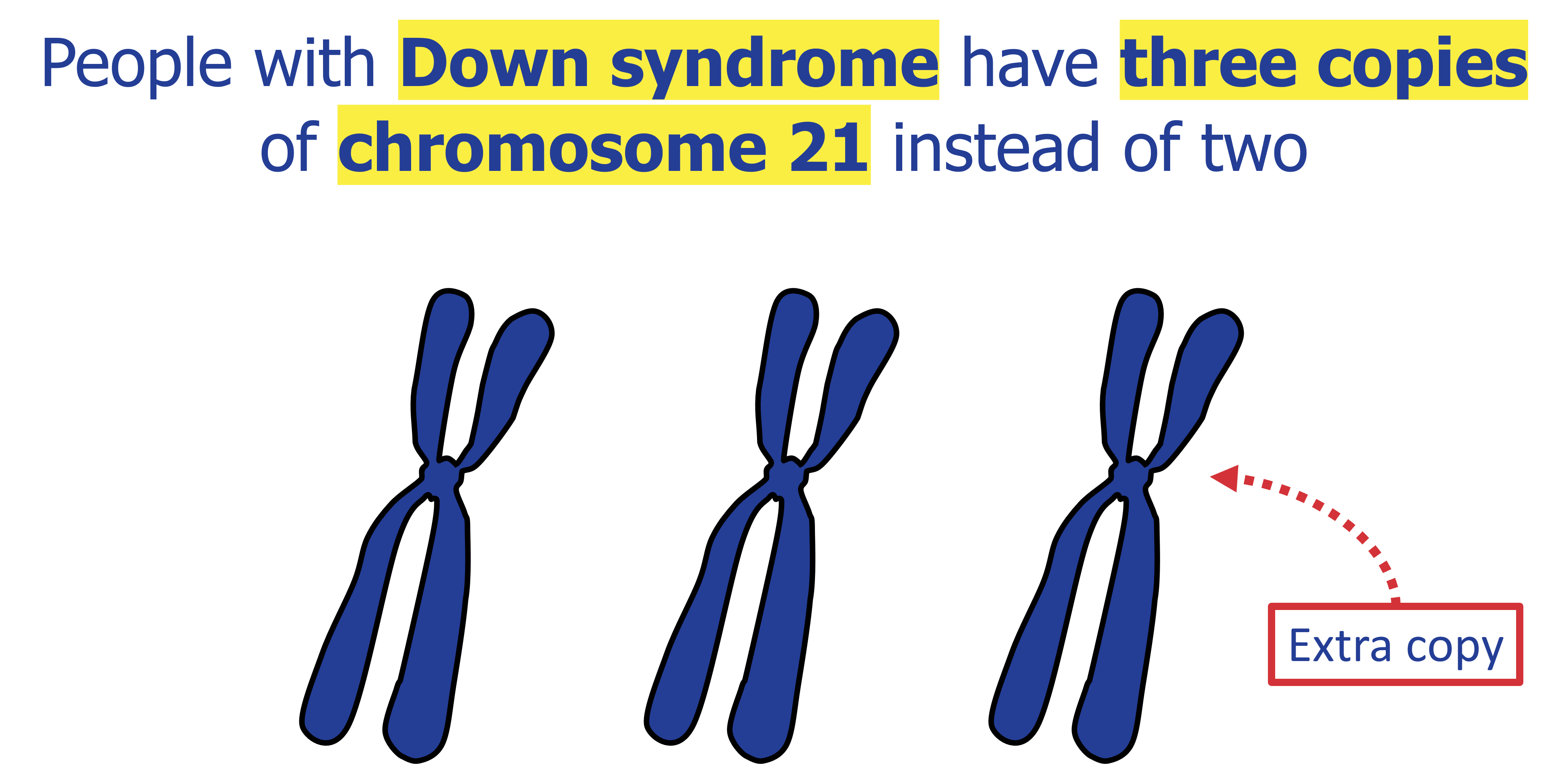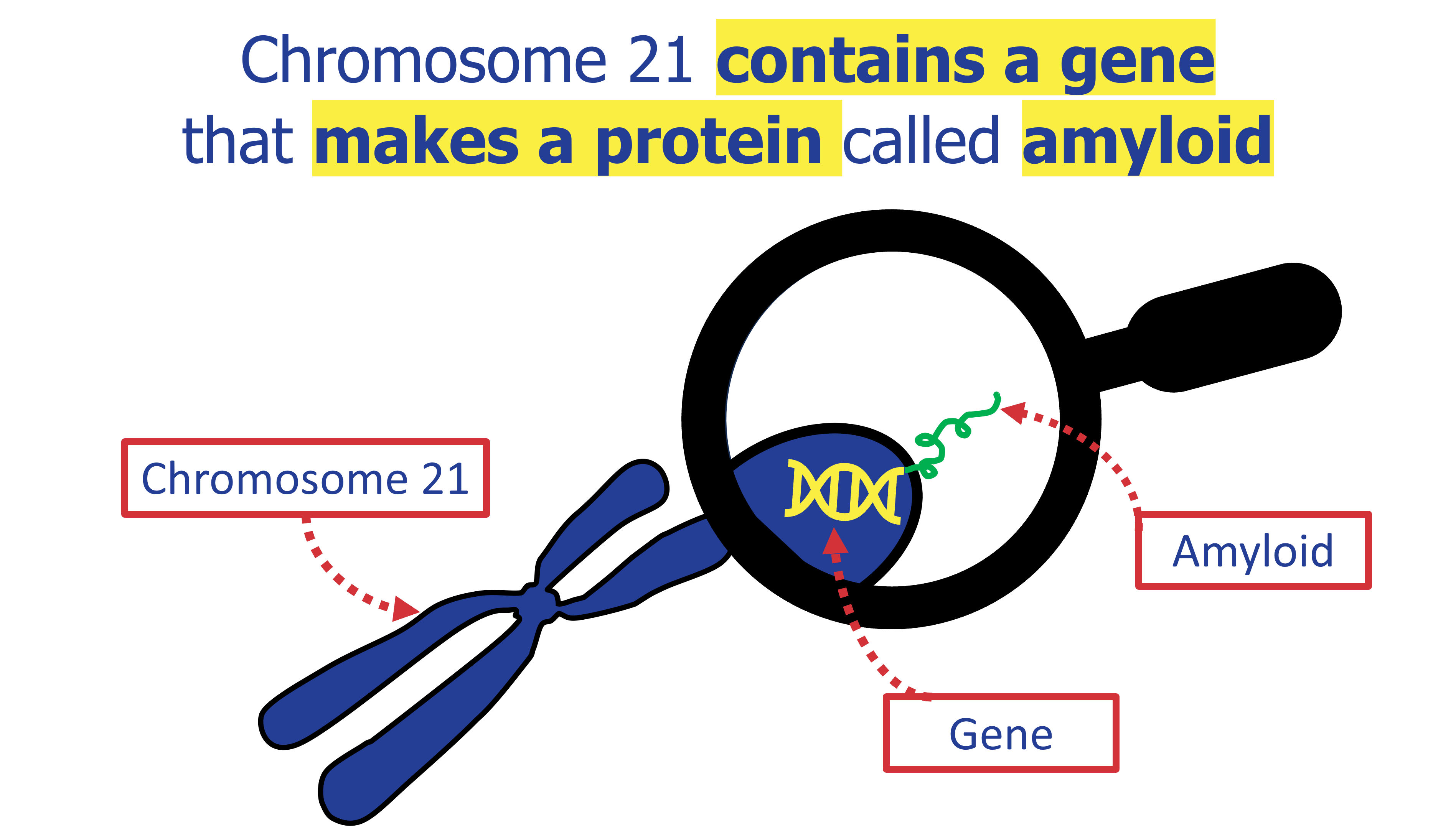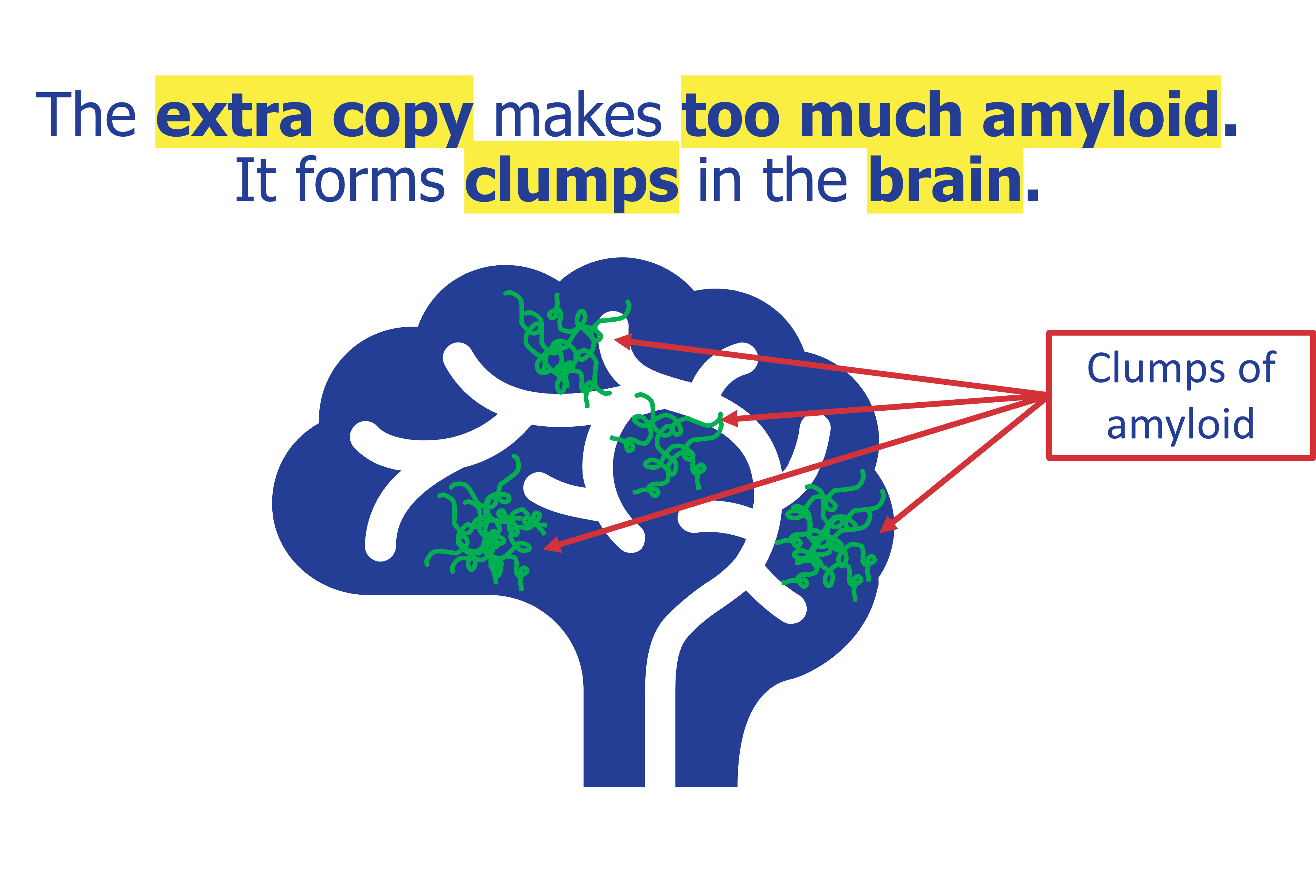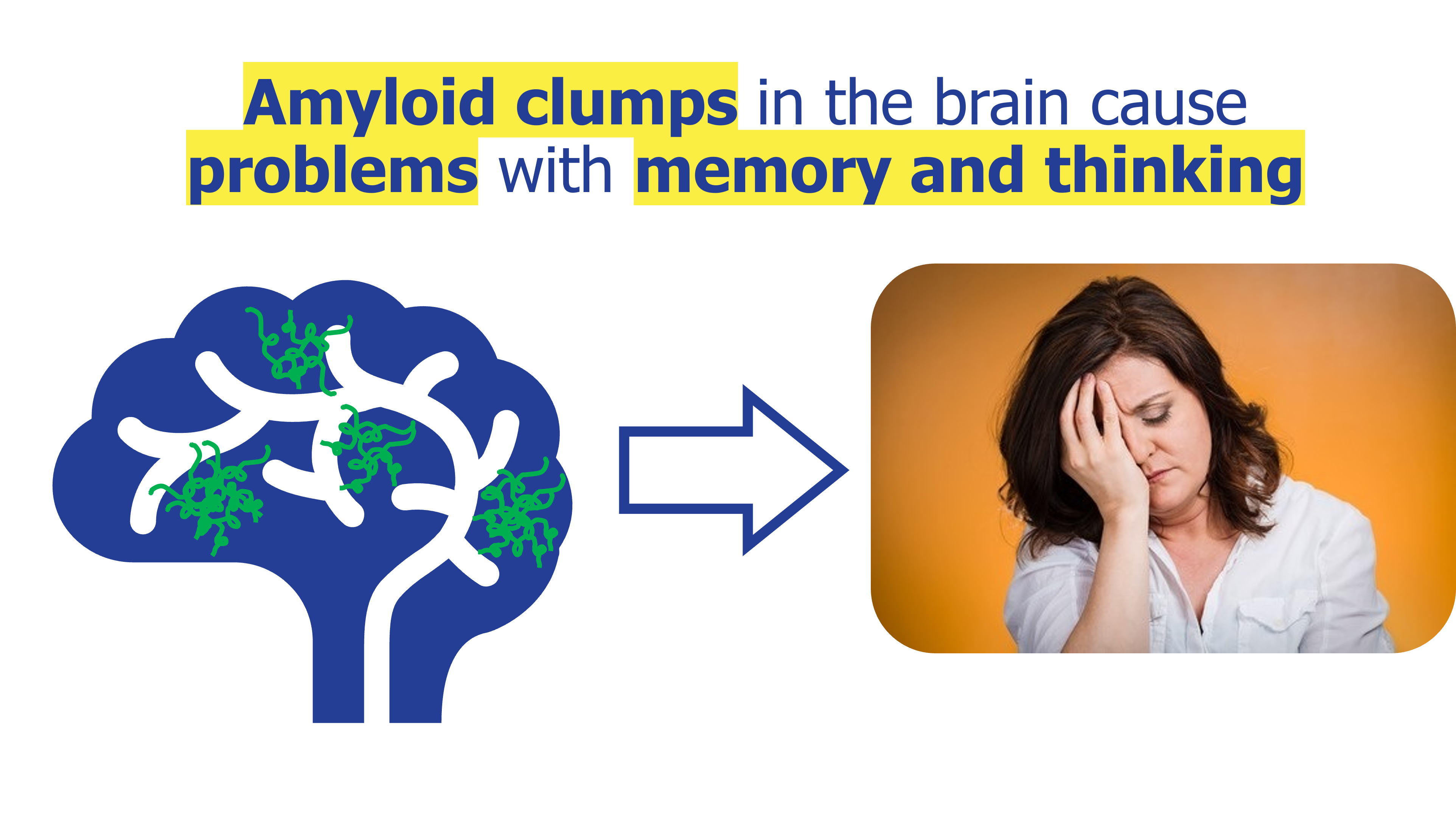Alzheimer’s disease can be difficult to talk about. It can be scary to know that the risk of getting Alzheimer’s disease is so high, and it is hard to think about facing this disease. Because the risk is so much higher for people with Down syndrome, it’s important to do research to better understand Alzheimer’s in people with Down syndrome and to develop treatments for it.

Age and Alzheimer’s disease
Today, more and more people with Down syndrome are living longer, healthier, and more active lives. In 1983, the life expectancy was 25. In 2024, life expectancy is 65.

That means we are seeing more and more people with Down syndrome over the age of 50 who develop symptoms of dementia caused by Alzheimer’s disease.
Alzheimer’s disease is a serious problem. It causes problems with memory and thinking. Those problems reduce independence and quality of life, and also shorten life span.
How people with Down syndrome get Alzheimer’s disease
The risk is higher in Down syndrome because of a gene that is found on chromosome 21. As you know, people with Down syndrome have an extra copy of the 21st chromosome.

Chromosome 21 contains about 350 genes. One of them is called the Amyloid Precursor Protein gene, or “APP” for short. APP makes a protein called amyloid.

In Alzheimer’s disease, amyloid forms a sticky goo in the brain. The goo builds up into clumps called “plaques.”
Because people with Down syndrome have three copies of chromosome 21 instead of two, they also have three copies of the APP gene. The extra copy of the APP gene means people with Down syndrome make extra amyloid protein.

Amyloid plaques are a major factor in driving the memory and thinking problems that we see in Alzheimer’s disease. Many studies have shown that treatments that remove amyloid from the brain can slow down Alzheimer’s disease. But these studies did not include people with Down syndrome.

Why clinical trials for people with Down syndrome are important

Alzheimer’s disease is mostly the same in people with and without Down syndrome. But there are some differences. For instance, the reason people with Down syndrome are more likely to get amyloid plaques and Alzheimer’s is because an extra copy of the APP gene on chromosome 21 makes extra amyloid. People without Down syndrome do not have an extra copy of that gene, so the reason they get amyloid plaques and Alzheimer’s is different.
People with Down syndrome also develop Alzheimer’s at a younger age than people without Down syndrome. And when people with Down syndrome get Alzheimer’s disease, it gets worse faster than it does in people without Down syndrome.
Unless treatments are studied in people with Down syndrome, we can’t know whether these differences will affect how well the treatments work. For example, some Alzheimer’s medicines that were approved a long time ago called “NMDA antagonists” do not work as well in people with Down syndrome as they do in people without it.
That is why we need research and clinical trials to study Alzheimer’s disease specifically in Down syndrome.

